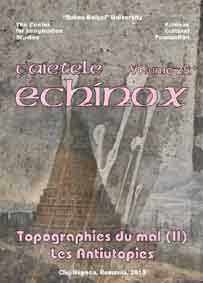Le narrateur en position dystopique
Narrator in a Dystopian Position
Author(s): Corin BragaSubject(s): Literary Texts
Published by: Universitatea Babeş-Bolyai
Keywords: Classical literature; Utopia; Dystopia; Narrator; Denis Veiras; Gabriel de Foigny; Jonathan Swift.
Summary/Abstract: This study deals with a subtle distinction in the construction of the utopian and dystopian texts. It starts from the observation that, in various extraordinary voyages of the classical period, the attitude of the author towards the utopian (or dystopian) states and cities that s/he describes is not always consonant with the attitude of the character that explores them. If author and character are congenial in their enthusiastic or depressive moods, the imagined country may be assessed without hesitation as utopian, respectively dystopian. However, it is often the case that, contradictorily, the author endorses the exotic civilization while the character dislikes it or feels unfit in it (like in Denis Veiras’ The History of the Sevarites or Sevaramby, 1675); or, symmetrically, that the author disproves it while the character admires it unconditionally (e.g. Gabriel de Foigny’s La Terre australe connue, 1676). This disagreement puts the character in a difficult situation, which I call “narrator in a dystopian position”. The dystopian position of the narrator is a mark for the disenchantment of the classical writers which, like Jonathan Swift, adopted a critical stance against utopian ideals.
Journal: Caietele Echinox
- Issue Year: 2013
- Issue No: 25
- Page Range: 44-52
- Page Count: 9
- Language: French
- Content File-PDF

